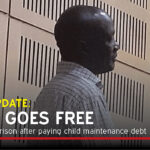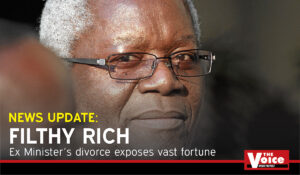Funders signal potential exit over the next six years
NAHPA to facilitate 2030 AIDS response roadmap
While Botswana’s HIV program is lauded as one of the most successful globally, witnessing a drop in new infections from a peak of 35,000 to less than 4,000 per year, the nation is grappling with a substantial financial burden.
HIV programs in Botswana consume over $130 million annually, as revealed during the United Nations Programme on HIV/AIDS (UNAIDS) and National AIDS and Health Promotion Agency (NAHPA) joint three-day Pitso event, themed ‘Reaching the last mile and sustaining the gains of AIDS response.’
Initiatives and programs aimed at eradicating HIV/AIDS in Botswana currently account for “13-18% of the Ministry of Health (MoH) budget, and 1.6% of the country’s GDP, which is challenging to sustain with domestic funding.”
As a result, Botswana has depended on international funding, with the primary contributors being the U.S. President’s Emergency Program for AIDS Relief (PEPFAR) and the Global Fund. However, these major external funders, responsible for roughly $50 million in annual contributions to Botswana’s HIV efforts, have indicated their intention to reduce support and potentially withdraw over the next six years.
In light of this potential shift, the conference aimed to explore Botswana’s 2030 roadmap – a comprehensive strategy for eliminating HIV by 2023 – with sustainable HIV funding as a central topic of discussion.
Jaime Atienza Azcona, UNAIDS Equitable Financing Director, emphasized that “HIV is far from over,” and continued support is necessary for programs that are funded over the long term to achieve the 2030 goal. Transforming the AIDS response into resilient programs that maintain a decline in new infections and AIDS-related deaths while leaving no one behind is crucial.
Azcona pointed out corruption as an impediment to sustainable HIV financing and underscored the importance of political support for securing AIDS funding. This support includes advocating for increased revenue and budget allocations to health, social spending, and addressing the HIV epidemic.
Dr. Robert Hecht from UNAIDS assured that once the roadmap is completed, NAHPA, along with support from Civil Society Organizations (CSOs) and other stakeholders, will provide continuous oversight. With a focused, well-funded, well-monitored approach, the roadmap holds the potential to lead Botswana to a future free from HIV/AIDS.














